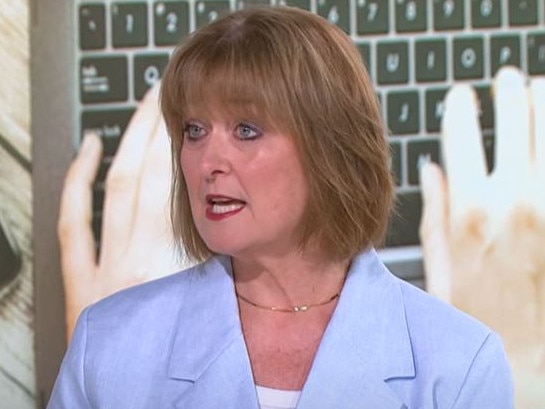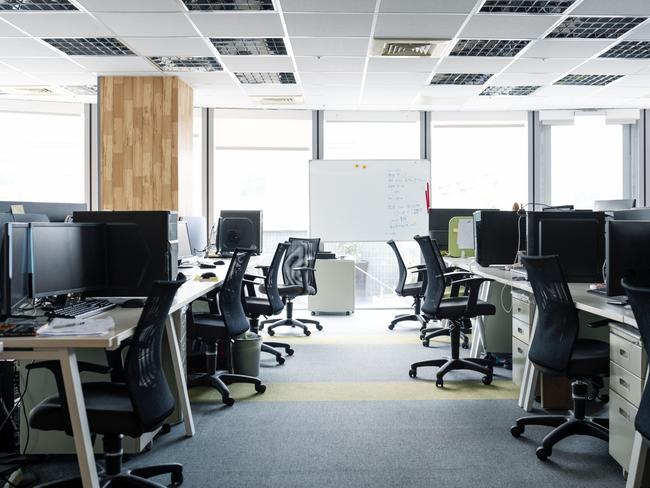‘Sounds like a mutiny’: Big reason working from home still hasn’t been scrapped in Australia
With all the concern around employees being forced back into the office, a surprising new prediction has been made about WFH in 2025.
Business
Don't miss out on the headlines from Business. Followed categories will be added to My News.
There have been growing concerns about what the future holds for working from home as we head into the new year.
Amazon, Dell, Tabcorp and Flight Centre were just some of the major companies in 2024 that announced new return to office mandates.
Hybrid and remote workers have had a tumultuous year, with growing fears that more businesses will follow suit and force staff back to the office in 2025.
But, there are those that believe the future of working from home in Australia may not be as dire as it seems.
Natasha Hawker, managing director for HR and recruitment company Employee Matters, believes a significant amount of employers will be reluctant to scrap flexible working benefits for fear of how staff will react.
Appearing on Sunrise, she said there are “enormous benefits” that come with working from home, which employees have now come to expect.
“What we have done by allowing our employees because of Covid to work from home, it is very difficult to put that genie back in the bottle, those employees really want that,” she said.
“When we recruit for our clients, we have candidates that will not go to an interview unless they have seen the working from home policy that says they can work from home.”

MORE: The best work-from-home jobs in Australia
At its peak in 2021, around 40 per cent of employed Australians were regularly working from home, according to the Australian Bureau of Statistics.
The latest figures, from August 2024, show that number has dropped, but not by much, with it now sitting at 36 per cent.
Even before the Covid pandemic, which drastically increased remote work rates, the percentage of people working from home regularly was steadily increasing year on year.
Ms Hawker believes many Australian companies may be reluctant to force staff back into the office five-days a week for fear of losing strong workers.
“Do you suspect that, despite these big companies we are hearing about, that others have seen the writing on the wall and they don’t want to lose their employees?” Sunrise presenter Monique Wright asked.
The HR and recruitment expert said she thinks “that is very much the case”.
MORE: The good and the bad of working from home
She referenced a recent survey from Australian recruitment agency, Randstad, which found that 52 per cent of white collar employees believe working from home in some capacity is a “fundamental right”.
The study found that, although 41 per cent of Australians would hesitantly return to the office if required, nearly one quarter would start actively searching for another job with a hybrid work arrangement and six per cent would resign right away.
“That sounds like a mutiny to me. So, you risk losing your top performers. We are still in an incredibly tight applicant market, you do not want to lose your high performers,” Ms Hawker said.
“So I think a lot of companies are going ‘You know what? It’s here to stay’.”

However, not everyone is convinced that 2025 is going to be a positive year for working from home, with Matt Loop, VP and Head of Asia at global HR platform, Rippling, predicting the power struggle between employers and workers to intensify.
“With our research showing 57 per cent of Australian employers are less likely to hire candidates unwilling to work in an office five days a week, the push for office-based work is clear,” he previously told news.com.au.
“Yet, many employees accustomed to remote flexibility will likely push back.”
Not long into in 2024, workers were warned that the “power had shifted” in favour of employers, with the post-pandemic period that saw employees retain a lot of bargaining power coming to an end.
A report from people2people Recruitment found the worsening cost-of-living crisis and a growing fear of job cuts was the main reason for the dynamic shift, with workers now looking to retain their jobs rather than risk trying to find new work.
This meant those that had previously negotiated remote and hybrid roles were now at risk of emboldened employers forcing them back into the office.
Mr Loop did warn that if we continue to see a rise in companies ordering staff back into the office five days a week there will likely be mixed outcomes.
“While it could improve team collaboration and cohesion, rigid policies may alienate parts of the workforce, particularly those who prioritise remote working,” he said.
“While it could improve team collaboration and cohesion, rigid policies may alienate parts of the workforce, particularly those who prioritise remote working,” he said.
More Coverage
Originally published as ‘Sounds like a mutiny’: Big reason working from home still hasn’t been scrapped in Australia





